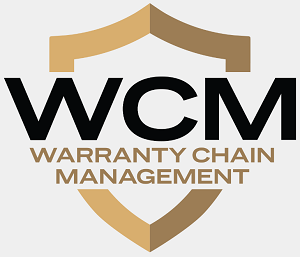December 29, 2016 |

|
ISSN 1550-9214 |
Legal Opinions:Two attorneys from Locke Lord explain how third-party billing for service contracts may open the door for cellphone carriers to be regulated by the Consumer Financial Protection Bureau. And the executive director of the Service Contract Industry Council explains how his group works with regulators to fight against deceptive marketing practices.Editor's Note: These columns by Locke Lord attorneys Brian T. Casey and Aaron J. Igdalsky, and by the SCIC's executive director Tim Meenan, are the latest in an ongoing series of contributed editorial columns. Readers interested in authoring a contributed column in the future can click here to see the Guidelines for Editorial Submissions page. How the CFPB Plans to Regulate Certain Cellphone CarriersBy Brian T. Casey and Aaron J. Igdalsky, Locke Lord LLP Tucked away in the proposed arbitration rule of the Consumer Financial Protection Bureau[1] is the addition of a new consumer financial product and service deemed to be within the purview of the CFPB. The arbitration rule, which would prohibit the inclusion of class action waivers in arbitration provisions for consumer products regulated by the CFPB, was subject to a comment period that ended several months ago, but has still not been published as a final rule. 
Under the arbitration rule, mobile phone carriers that engage in third-party billing services will soon be considered to be providing a CFPB covered product, and will become covered persons within the CFPB's jurisdiction in respect of their provision of such services. This would be the twelfth consumer product subject to the CFPB's regulation, and the second such product the CFPB has established by regulation.[2] Mobile phone carriers frequently bill and collect insurance premiums for insurers that sell cellphone insurance as well as fees payable for cellphone service contracts (also known as extended warranties). Here, the mobile phone carrier is acting as a collection agent, or what the insurance industry calls a third party administrator for the providers of these insurance and insurance-like products. In many states, state portable electronics insurance law expressly permits mobile phone carriers complying with such law to bill and collect premiums for portable electronic device insurance without licensure as a third party administrator.[3] The addition of the twelfth consumer financial product and service to the list of those which the CFPB regulates may open the door for additional, future regulation of mobile phone carriers by the CFPB where they are engaged in rendering consumer financial services activities beyond third party billing and collection services on behalf of third-party financial services providers. Expansion of the CFPB's Jurisdiction to Mobile Phone CarriersIn a footnote to the arbitration rule, the CFPB refers to third-party billing as follows, "In mobile wireless third-party billing, a mobile wireless provider authorizes third parties to charge consumers, on their wireless bill, for services provided by the third parties. Because mobile wireless third-party billing involves the extension of credit to, and processing of payments for, consumers in connection with goods and services that the provider does not directly sell and that consumers do not purchase from the provider, the provision of mobile wireless third-party billing is a 'consumer financial product or service' under the Dodd-Frank Act."[4] The CFPB seems to base this conclusion, which is not buttressed by any specific reference or analysis to mobile wireless providers in the substantive portions of the arbitration rule, on the bureau's review of the wireless contracts of the eight largest facilities-based providers of mobile wireless services, which the CFPB claims also govern third-party billing services.[5] The CFPB presupposes that this type of billing arrangement constitutes "the extension of credit to, and processing payments for, consumers in connection with goods and services that the provider does not directly sell." However, typically there is no extension of credit in the purchase of cellphone insurance or a cellphone service contract. Rather, these contracts are written on a month-to-month basis, and if the required monthly premium or fee is not paid, they simply lapse, and there is no debt upon which the insurer or service contract provider can sue to collect if the customer ceases paying the insurance premiums or service contract fees. Thus, it is difficult to understand how the CFPB concluded that a credit transaction exists where a mobile phone carrier provides third-party billing services for portable electronic device insurance and service contracts. Furthermore, the CFPB's process of adding a mobile phone carrier's third-party billing services as a covered product raises some questions. The arbitration rule's footnote's statement that wireless carriers' third-party billing involves the extension of credit to, and processing of payments for, consumers cites the CFPB's 2015 arbitration study.[6] However, while the CFPB examined the arbitration provisions in wireless contracts of the eight largest providers of mobile wireless services as part of the CFPB's 2015 arbitration study, it does not contain any statements that these third-party billing services are credit transactions, which, of course, was not the purpose of the study. It appears that the CFPB has assumed that all third-party products and services that consumers buy and for which they authorize their mobile wireless carrier to bill have been purchased by consumers using a credit card or some other underlying credit transaction. Therefore, it is unclear whether the CFPB has properly determined that these third-party billing involves the extension of credit. Application to Mobile CarriersAssuming the CFPB was somehow correct in finding that a credit transaction does exist in the context of portable electronic device insurance and service contracts in the mobile phone industry, the question becomes: "What is the practical implication of the Arbitration Rule to mobile phone carriers?" While a discussion of the ability of mobile phone carriers to include arbitration clauses in their customer service agreements under the Federal Communications Act[7] and the regulations of the Federal Communications Commission is beyond the scope of this article, one logical application of the arbitration rule is that mobile phone carriers may not include a class action waiver in the arbitration provisions of their customer service agreements relating to third party billing matters. Regardless of the fact that the FCC and related regulations do not prohibit a mobile phone carrier from including an arbitration clause with a class action waiver, the arbitration rule may have the effect of prohibiting mobile phone carriers from forcing their customers into only individual arbitration claims with respect to billing and collection disputes over cellphone insurance premiums and service contract fees. The potential application of a ban on arbitration clauses also raises questions about the interplay between the CFPB and other federal regulators, namely the FCC, which historically has been the mobile phone industry's primary regulator. Application to Cellphone Insurers and Service Contract ProvidersAnother question is: "What is the implication to cellphone insurers and service contract providers, if any, of the Arbitration Rule's application to mobile phone carriers that provide third party billing services for these insurers and service contract providers?" In the case of cellphone insurance, the answer is likely nothing insofar as (i) the CFPB's jurisdiction excludes the business of insurance, and (ii) most states prohibit the inclusion of arbitration clauses in consumer or personal lines insurance policies anyway. For cellphone service contracts, however, the arbitration rule may invoke a perverse application of "service provider" status on the cellphone service contract provider. The mobile phone carrier is actually rendering a billing service to the service contract provider, but under the arbitration rule, the mobile phone carrier is the covered person with respect to the third-party billing/covered product. Could this lead the CFPB to aggressively argue that the service contract provider is somehow a "service provider" with respect to such covered product? Under the Consumer Financial Protection Act, a "service provider" of a CFPB covered person is another person that provides a material service to a covered person in connection with the covered person's consumer financial product or service, including maintaining or processing transactions relating to a consumer financial product or service.[8] Furthermore, a person that is a service provider is deemed to be a covered person to the extent that the service provider engages in offering or providing its own consumer financial product or service.[9] The CFPB generally has the same enforcement powers over service providers as it does over covered persons.[10] However, a service provider does not include a person solely because it provides a support service of a type provided to businesses generally or a similar ministerial service.[11] It is unclear why the CFPB did not consider, or the mobile phone services industry did not argue that, third-party billing services should be viewed as a general payment billing and collection business service. If the cellphone service contract provider were accorded service provider status under the Consumer Financial Protection Act, then the arbitration rule may prohibit inclusion of class action waivers within cellphone service contracts' arbitration clauses, foreclosing, for example, class action waivers for claims disputes, even though service contracts are neither insurance nor a CFPB covered product. As we wrote about in previous articles,[12] there is an open question about whether service contracts or extended warranties are or could become CFPB regulated consumer financial products/services. In most states that have enacted laws regulating these types of products, the provisions lie within the state insurance codes. Most of these statutes expressly state that service contracts or extended warranties are not insurance or are subject to very limited parts of a state's insurance code (such as its unfair trade practices act). However, most state insurance departments do maintain regulatory oversight of these products. The declassification of these products from insurance exposes them to the potential of CFPB's jurisdiction because they are likely not within the "business of insurance" exception to the CFPB's jurisdiction. ConclusionThough the full extent to which the arbitration rule will impact third-party biller mobile carriers remains to be seen, the proposed rule represents a number of major issues for the mobile phone industry and potentially the service contract and insurance industries. The need for tailored arbitration clauses, the potential for a new federal regulator, and possible issues involving the interplay of state and federal law all present potentially complicated and expensive issues for the impacted industries. Finally, the arbitration rule represents the continued expansion of the CFPB's jurisdiction into fields that are beyond its statutorily-authorized jurisdiction and represents further encroachment into the insurance and service contract industries. Post ScriptIt is no longer certain if or when the final arbitration rule will be adopted and published in the Federal Register. The incoming President-elect Donald Trump's administration has requested a moratorium on new federal regulations. Some agency heads, however, may rush to publish final rules before the formal transition of power which will only add further confusion and uncertainty into compliance requirements.[13] In a Federal Insurance Office report[14] released in November 2016, the FIO urged states to take measures that would limit insurers' use of mandatory arbitration clauses. The report states that "Policymakers and state insurance regulators should consider developing appropriate constraints on mandatory arbitration clauses in insurance contracts. State policymakers and insurance regulators should assess whether the current lack of uniformity in state laws and regulations raises questions about whether state consumer protections for insurance consumers should better align with those afforded to the consumers of other financial products and services."[15] ReferencesAbout the AuthorsBrian T. Casey is a partner in Locke Lord LLP's Atlanta office and Aaron J. Igdalsky is an associate in the Hartford CT office. Casey, as co-leader of Locke Lord's Regulatory and Transactional Insurance Practice Group, and a member of the firm's Corporate, Capital Markets and Health Care Practice Groups, focuses on corporate, merger and acquisition, corporate and structured finance and other transactional, and regulatory matters for corporate clients in the insurance, financial services and health care industries. His clients include insurance companies, insurance holding companies, managing general agents and insurance agencies, third party and claims administrators, banks and other financial institutions, investment banks and reinsurance companies. Igdalsky focuses his practice on transactional and regulatory matters on behalf of insurers, health care and financial institutions, and other regulated businesses. He has additional experience in writing and negotiating non-disclosure agreements with potential merger and acquisition targets and private equity investments, as well as managing regulatory compliance with federal and state health care and insurance laws, regulations and agency directives. What Consumers Need to Know About Service Contracts This Holiday SeasonBy Tim Meenan, executive director of the Service Contract Industry Council The approach of the holiday season and the close of another year is always a time to reflect. You'd be surprised at how much time and money you spent fixing your car, home appliances, and electronics -- or buying replacements after they broke. A September survey by the Service Contract Industry Council found that 70% of American consumers have broken an electronic device in the past year, and two-thirds of homeowners needed to repair or replace a home appliance. 
Service contracts -- more commonly called extended warranties -- provide coverage beyond the manufacturer's warranty for a wide range of purchases, including vehicles, consumer goods, and home appliances. Extended warranties often get a bad rap because of a few isolated shady practices that make the news, but millions of consumers each year have positive experiences with them. The Service Contract Industry Council works to ensure that consumers are protected from bad players by helping to effectively regulate the service contract industry. SCIC's members are licensed companies that abide by current regulations and provide excellent customer service. SCIC prides itself on fighting against confusing mailers, high-pressure tactics, and other bad practices, and we're doing everything we can to help put an end to those schemes. Why? Because we know how helpful service contracts are for consumers, and we don't want anyone to be confused about their value or tricked into purchasing a bad one. In fact, SCIC has worked with Maryland's General Assembly to combat the very practices that the Maryland Attorney General has been warning consumers about. In 2015, SCIC pursued and passed legislation that would prohibit the types of deceptive and misleading mailers that are referenced in a recent Washington Post article and Attorney General's advisory. SCIC has worked to pass similar laws across the country in the past and will continue its efforts in 2017 and beyond. As a steward of the service contract industry, SCIC knows that a service contract is a very valuable product for consumers and misleading tactics in the marketing of the product will not be tolerated by the industry. Consumer BenefitsBy purchasing from SCIC members, consumers can enjoy benefits such as 24-hour technical assistance, discounted maintenance costs, and high-quality service from expert professionals across the country. Let's face it: Cars, electronics, and home appliances aren't made the way they used to be. The increased complexity of today's technological advances mean more costly repairs when everyday necessities fail. Many people choose not to get an extended warranty because they don't think the worst will happen to them. But it can, especially when you consider how people are hanging onto their vehicles and other expensive products longer. Inevitably, a breakdown is likely going to come. Of the American consumers recently surveyed, 89% of vehicle owners with more than 100,000 miles on their car reported not having the security of an extended warranty. This not only depreciates the value of the car, but also puts the owners at risk if they don't conduct regular maintenance and repairs. This holds true for electronics and home appliances, too. As the holidays approach, SCIC will be sharing information on our website to help consumers learn where to easily purchase service contracts, how to file claims, obtain in-home repair services, and more. Before buying, consumers should also check their state Attorney General's website or their Department of Insurance to find a service contract provider's history, and ensure the provider is licensed or registered. If you are unable to locate this information, feel free to reach out to SCIC for assistance. And if you're not sure whether you need a service contract, be aware that most states offer a 30-day free-look period, so you can try it out. All it takes is one large repair to put a serious dent in your holiday budget. A service contract provides the peace of mind we all could use during this season. About the AuthorTim Meenan serves as executive director and general counsel of the Service Contract Industry Council (SCIC), a national trade association that works with lawmakers across the country to develop fair and uniform regulation to protect consumers. SCIC member companies, which include prominent manufacturers, insurers, retailers, providers and administrators of service contracts, collectively offer approximately 80 percent of all appliance, consumer electronics, home and vehicle service contracts sold in the U.S. The SCIC monitors state legislative and regulatory activities, contributes to relevant legislative and administrative proceedings, and educates businesses and consumers about the value and benefits of service contracts. Since 1988, the SCIC has been the national leader and pivotal force in the development of model legislation throughout the country, working for balanced standards that create fair and consistent regulation of the service contract industry. For more information about purchasing a service contract, visit http://www.go-scic.com/. | |||||||||||||||||||||||||||||||||||||||||||||||||||||||||||||||||||||||||||||||||||||||||||||||||||||||||||||||||||||||||
| |||||||||||||||||||||||||||||||||||||||||||||||||||||||||||||||||||||||||||||||||||||||||||||||||||||||||||||||||||||||||









